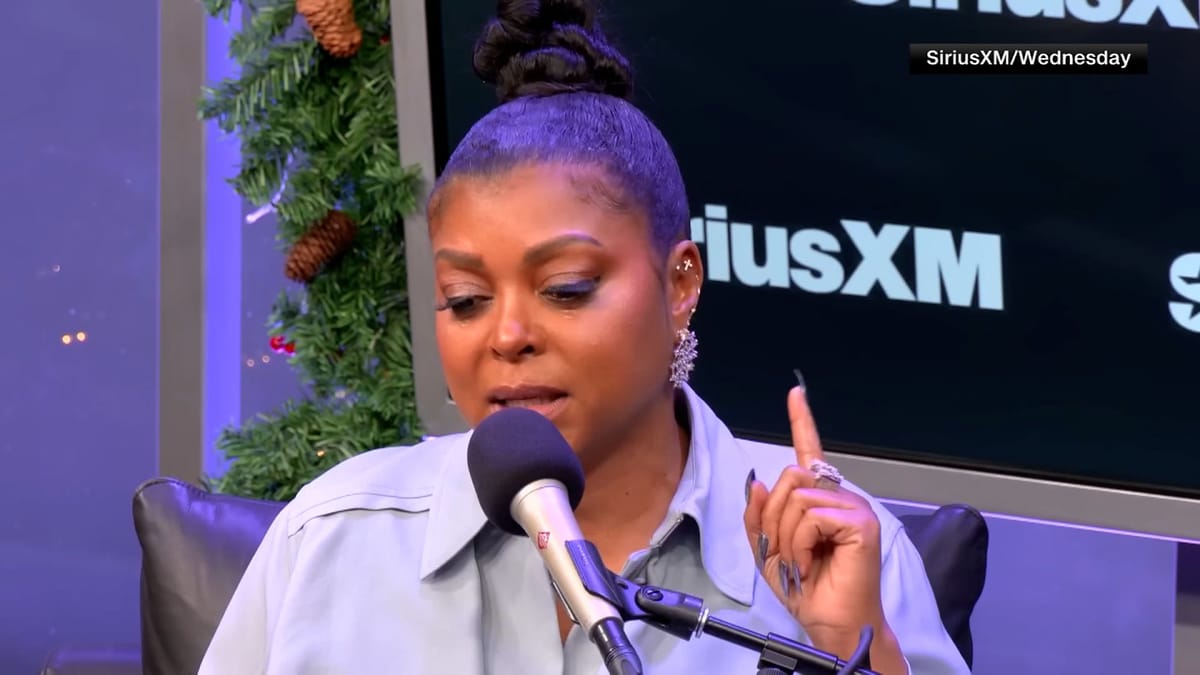Pay Me What You Owe Me!

Geneve Harmitt-Williams, BA Social Anthropology and History
Important conversations about pay inequality for Black women have recently emerged from the ‘The Colour Purple’ press tour, particularly in regards to Taraji P. Henson, the Golden Globe and SAG award winner. The 26th of January marks the UK release of the film, a moving story about the traumatic experiences of characters such as Shug Avery (played by Henson) and Celie (played by Fantasia Barrino). This film follows the life of an African American woman who was born during a time when Jim Crow laws legally enforced segregation and racial violence against Black people. In addition to racial oppression, Celie is a survivor of gender-based violence.
A photo of Taraji P. Henson crying during an interview with Sirius XM over pay disparity
(CNN Entertainment)
‘The Colour Purple’ is a moment for Black artists to deliver a profound story that speaks to the history of segregated America, whilst inspiring and representing Black people on screen. Therefore, Taraji P. Henson’s admission that she “almost had to walk away from The Colour Purple” in a SAG-AFTRA interview discussing the Hollywood pay gap, is deeply disappointing. This film provides a platform for the intersectional suffering that African American women face as a result of racism and patriarchy, and without Henson’s beautiful contribution, the story would not be conveyed in the same way. So why doesn’t she receive the same financial compensation as white actors/men of the same calibre and experience? Portraying experiences like those in ‘The Colour Purple’ must require a great deal of emotional labour; the fact that actors like Taraji are giving incredible performances, bringing audiences to tears while receiving inadequate compensation undervalues the work, time, and true artistry they put into these productions.
Taraji has been vocal about the pay disparity in Hollywood on and off for many years, but it has recently blown up. To put this conversation in context, the American Actors’ Union SAG-AFTRA recently went on strike from July 14 to November 9 2023, the longest action in its history. Members who participated in the strike demanded an increase in both the minimum wage and streaming residual earnings. Alongside this, the Writers Guild of America’s strike highlighted the disparity in pay for writers, overall, these circumstances demonstrated how Hollywood (more like Hollyweird) is rubbish and exploitative.
A definition of the term misogynoir
(Urban Dictionary)
“I’ve had enough of seeing established, talented Black actresses fight for basic respect and the pay they deserve! They are the entertainment, and they bring in the money”
These situations are the result of years of unequal pay and corporate greed, but for Black women like Taraji P. Henson, this reality is further worsened by ‘Misogynoir’. This is intersectional discrimination against Black women, who face oppression because of their gender and race. Gabrielle Union is another actress who has addressed these unfair circumstances, and it is simply wrong that these major production companies and Hollywood CEOs are paid millions for the work that Black women put into their roles. I’ve had enough of seeing established, talented Black actresses fight for basic respect and the pay they deserve! They are the entertainment, and they bring in the money, but it seems that those in power only want to profit off of their work without fair compensation.
As a Black woman, regardless of your job, this will resonate. Having to work twice as hard to prove yourself, being treated as if you should be lucky to have the opportunities you do, and not receiving well-deserved treatment or compensation due to underestimation. It’s disheartening and it makes you want to give up on your dreams, just as Taraji is now considering. However, to take a positive note, some inspiring Black women are getting the recognition they deserve, so shout out to Ayo Edebri, Quinta Brunson, and Niecy Nash-Betts for winning awards in the 2023 Emmys for their standout performances. All I can say now is that Black women in Hollywood deserve to be given their flowers, so in the spirit of Rihanna, pay them what you owe them!




